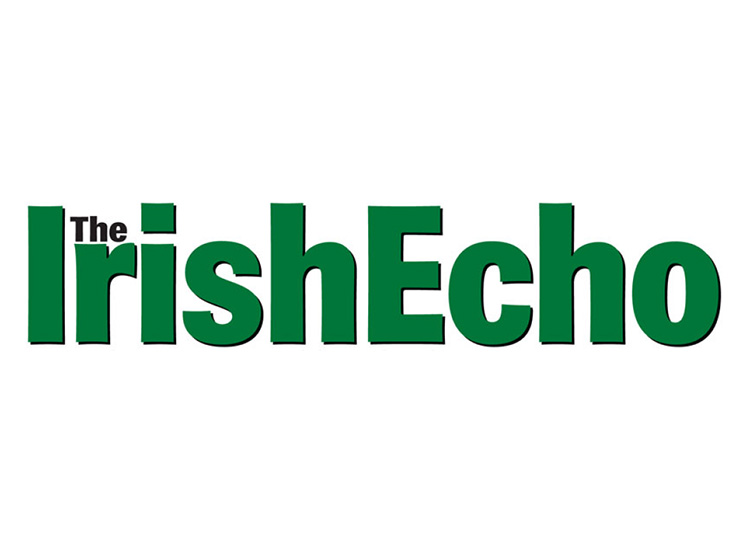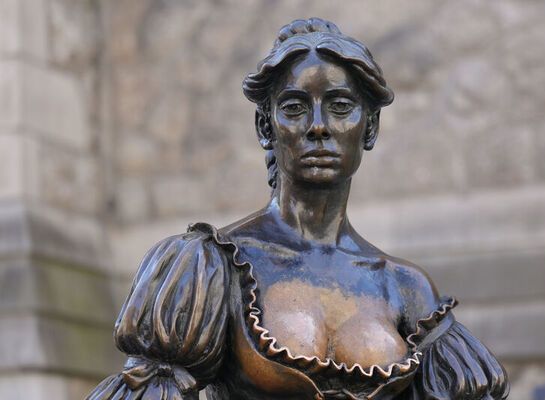Another comparison is getting tenure as a professor after a long period of post-doctoral studies. Or sometimes he just says that he's been made a partner -- his name is on the door.
The first partner, the first name on the door is that of St. Ignatius Loyola, who was born in the Basque country in 1491. The founder of the Society of Jesus figures prominently in Fr. Martin's latest book, "The Jesuit Guide to (Almost) Everything" -- an introduction to Ignatian spirituality and specifically the command to find God in all things.
"Ignatius's life, his writings, particularly a book called 'The Spiritual Exercises' and also the spiritual know-how that was passed on from Jesuit to Jesuit over the last 450 years is really what I'm translating for the general reader," Martin said.
"[It discusses] how to make good decisions, how to be a good friend, how to find freedom in your life," he said, "as well as how to relate to God and draw closer to God in prayer and in your daily life.
"So it's a very user-friendly, accessible, practical spirituality," said Martin, who is a regular on TV, notably "The Colbert Report," and National Public Radio.
There are numerous scholarly studies or works aimed specifically at practicing Catholics on the topic, but Martin's is billed as the first for the mainstream reader.
"I wanted to introduce it to as wide an audience as possible," he said.
Martin has the right track record to do just that. His books have been praised for their wit and readability. One of them, "My Life With the Saints," was a bestseller after it came out in 2006 and still sells well.
The Jesuit's appeal as a writer also derives from his willingness to be forthright about his own humanness. In the "Jesuit Guide," for instance, he reveals that on occasion he's become overly attached in friendships.
"I think that talking about spirituality demands a personal touch and also personal narratives," he said.
Benefit of the doubt
"Into this book is poured 20 years of experience in listening to people, counseling people, reading about Ignatian spirituality, directing retreats," he said. "So it's practical. It's very real life."
The priest even brings in his Italian-American mother, who at times has displayed an intuitive grasp of Ignatian spirituality - particularly with regard to giving the benefit of the doubt. Her credo is: you don't know what problems a person might have in his or her life.
All of this is in the realm of the Ignatian principle of "presupposition." Martin explained: "Always put a good interpretation on someone's words and actions. It's very helpful, and I think, in politics and the media today, we don't give the person the benefit of the doubt. And Ignatius says: if there is a doubt, ask the person how he means it.
"That's key not only for political relationships, but personal relationships and family relationships and work relationships."
As for the central concept of finding God in all things, Martin said: "It means there's nothing that is considered outside the purview of your spirituality, whether it's your work, or sexuality or family problems or financial problems.
"We believe that God is already there," he said. "So it's finding God in all things; it's not forcing God upon all things.
"I think that's also the difference from the missionary of 100 years ago and today," said Martin, who worked for two years with refugees in Kenya.
Instead of preaching to people, the Society of Jesus approach emphasizes "working with them and listening to them and recognizing that they have an authentic experience of God in their own lives and it's not something that we show them or tell them."
Martin added: "But we have something important - a different type of spirituality and worldview - that we would bring to them."
The Philadelphia native found the Jesuits in the mid-1980s after he'd become disenchanted with his yuppie lifestyle and disillusioned more generally with corporate America. He'd grown up in a middle-class family (a relative has recently traced his father's roots to Castlebridge, Co. Wexford) that wasn't particularly devout. After graduating from the University of Pennsylvania, he did a postgraduate degree at its prestigious Wharton School of Business. But a few years later, he gave up a lucrative executive position and a promising career with General Electric to take vows of poverty, chastity and obedience.
TV, radio tips
These days, he works as the culture editor of America, the Jesuit weekly, at its offices on 56th Street in Manhattan, just off Sixth Avenue, and lives with his community in the same building.
He is much in demand by the mainstream media. But only "The Colbert Report" has named him as its "chaplain."
"He's a great guy," Martin said of host Stephen Colbert. "He's Catholic, so that helps us to get along.
"He's extremely bright," he added. "So I know his character is going to ask me good questions."
Colbert makes it clear beforehand to the studio audience and his guests that he is indeed in character. "You need to treat me like this blowhard," the Jesuit was told before his first time on the show.
Martin said that the real Colbert is seen on PBS' "Faces of America," which traced his roots in Ireland and elsewhere.
However, polls have shown that many conservatives believe that the liberal satirist is actually one of them. And some others, who are less familiar with the program, aren't in on the joke, either. An elderly Jesuit said to Martin the day after his first appearance: "I can't believe you're on his show."
Occasionally, when the author gets a media request, he feels he's not quite what the show's producers are looking for.
"Some people expect priests to be unthinking, rigid and judgmental," he said. "But most of the time people are happy that you are open-minded and articulate, which I try to be."
Martin's tips for media appearances are: "Keep your answers short and simple; make sure you don't use any jargon; always be charitable, no matter how pointed the questions are."
It's important, too, to be careful of reaction shots. "When I listen to people, I tend to nod," Martin said. He does it whether or not he agrees with the person. So, on one early TV appearance, he gave rather mixed signals. "When I came home my editor at the time, Fr. Reese, said: 'I've a suggestion for you -- next time someone is critiquing the Catholic bishops, try not nodding your head, even if you're just listening.'"
It's an anecdote that might make the next book, which will be about joy, humor and the spiritual life.
"The Jesuit Guide to (Almost) Everything" by James Martin S.J. is published by HarperOne. It's priced at $26.99. Fr. Martin will appear on ABC's "20/20" on Good Friday, April 2.








